#finitud
Photo

Tras nuestro último encuentro han pasado más de cien años. Durante todo este tiempo he seguido enfrentándome a enemigos del lado oscuro, de las sombras y de mi propia especie, y he continuado alimentándome de aquellos humanos que están aquí porque, como dicen ellos, tiene que haber de todo, pero que nadie, ni siquiera ellos mismos, podrán echarse de menos. Limpio esta sociedad absurda de seres innecesarios. [...]
Nunca se puede subestimar a una banshee y mucho menos a Letania, cuyas malas artes superaban a las de cualquier ser oscuro. La batalla iba a ser cruenta. Todos mis flancos estaban custodiados. El propósito estaba claro: una especie de embudo para llevarme hacia ella. Qué absurdo modo de enfrentarse a mí. [...]
“Finitud”
©ɱağa
Si deseas leer por completo, pasa por la Trastienda: https://latrastiendadelpecado.blogspot.com/2023/04/finitud.html
#Azul de Magdalia#Magade#©ɱağa#finitud#trastienda#relatos oscuros#jueves de relatos#relatos cortos#historias#lux et tenebrae#seres oscuros#relatos de fantasía oscura#fantasía oscura
18 notes
·
View notes
Text
INSTANTE
Hoy me rebozaría entre las sábanas apresando el instante, para que sea menos breve y, la concatenación con otros sea pausada, lenta, imperceptible. Me transformaría en un ínfimo reducto del tiempo para sentir que no transcurre, que lo que palpita en mí no es perecedero y que podría alimentarme de esta humana y gratificante sensación el resto de mis días. Que pasen ellos, pero que yo no posea la…

View On WordPress
0 notes
Quote
Our minds are finite, and yet even in these circumstances of finitude we are surrounded by possibilities that are infinite, and the purpose of human life is to grasp as much as we can out of the infinitude.
Alfred North Whitehead, Dialogues
#philosophy#quotes#Alfred North Whitehead#Dialogues#life#humanity#limitations#finitude#possibilities#infinity
274 notes
·
View notes
Text
The truth is that this is the only way I can live: in two directions. I need two lives. I am two beings.
— Anaïs Nin, Henry and June from "A Journal of Love" : The Unexpurgated Diaries of Anaïs Nin 1931-1932
#literature#book#citation#book quote#Anaïs Nin#the unexpurgated diary of anaïs nin#journal of love#henry and june#quote#poetry#livre#finitude#infinite#i am infinite#being#beings#life#lives#truth
109 notes
·
View notes
Text
nous ne sommes qu’un rien de poussière qui avance vers le néant et nous pensons naïvement à la fin de cette avancée devenir quelqu’un, là où il faudrait au contraire se rendre poussière avant la poussière du rien pour ne rien craindre alors du discours du néant, néant nous-mêmes
© Pierre Cressant
(mardi 13 septembre 2022)
#poésie en prose#poésie#poètes sur tumblr#poème#poème en prose#prose poétique#poètes français#french poetry#poésie contemporaine#poètes français#vie#philosophie de la vie#poussière#finitude#destin#poésie gnomique
18 notes
·
View notes
Text
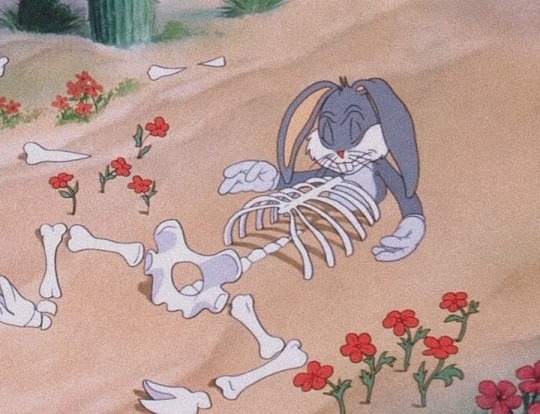
2 notes
·
View notes
Photo
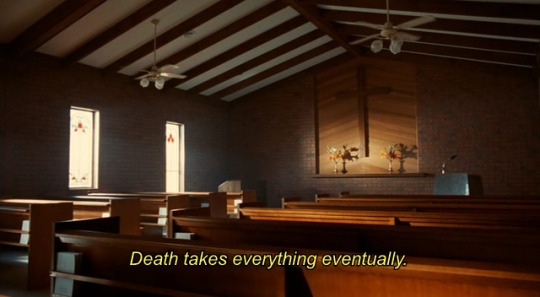
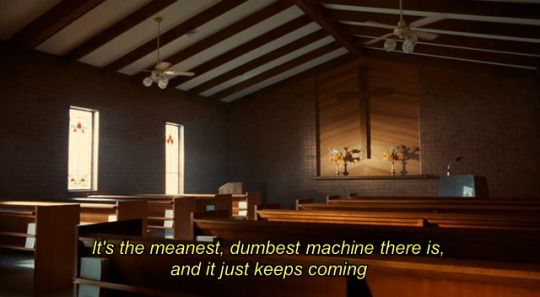
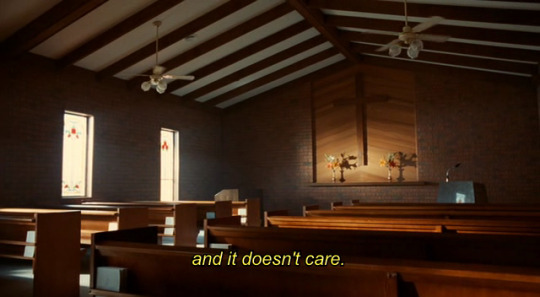
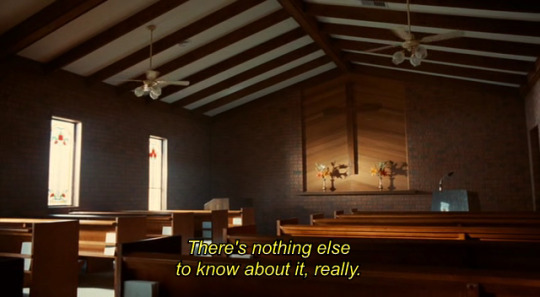

Lake Mungo, 2008
#drama#horror#mystery#lake mungo#joel anderson#rosie traynor#david pledger#martin sharpe#finitude#halloween
24 notes
·
View notes
Text
The Surprising Etymology of "Joukery": From Dodging to Deceit
Language is a fascinating tapestry of words and phrases that have evolved over centuries, often taking unexpected turns in their meanings and connotations. Sometimes, a word might sound offensive at first glance, but delving into its etymology reveals a surprisingly innocent origin. "Joukery" is one such word. Though it might initially strike you as a potentially offensive term, its etymology takes us on a journey from dodging to deceit.

The Mysterious "Joukery"
"Joukery" is a word that doesn't see much use in modern English, but it still lingers in some corners of the language, meaning trickery or deceit. It's a term that can sound harsh, even offensive, depending on the context in which it's used. However, when we dig into its history, we uncover a much more innocent beginning.
Etymology of "Joukery"
To understand the origins of "joukery," we need to break it down:
Jook: The first part of the word, "jook," is the key to its meaning. "Jook" is a term that can be traced back to Scottish and Northern English dialects. It means to dodge or move quickly to avoid something. It has the sense of a quick, evasive action, much like when someone ducks or sidesteps to avoid being hit or caught.
-ery: The second part of "joukery" is the suffix "-ery." In this context, "-ery" is used to form nouns that denote a place or condition. It's a suffix that has its roots in Old French, where it often transformed adjectives or verbs into nouns.
So, when we put these elements together, "joukery" essentially means the act or condition of dodging or avoiding things quickly. This concept of dodging or evading forms the basis for its eventual shift in meaning towards trickery and deceit.
The Evolution of Meaning
Language is constantly evolving, and words can change their meanings over time. In the case of "joukery," its transformation from a word denoting evasive action to one describing trickery likely occurred as people began to associate evasive actions with deceitful intentions.
Imagine a situation where someone is constantly dodging questions or evading the truth. Over time, it's not difficult to see how "joukery" could come to describe such behavior. The line between evading questions and engaging in trickery blurs, and the word naturally takes on a more negative connotation.

"Joukery" serves as a compelling example of how words can take on meanings that diverge from their innocent origins. What may seem like an offensive term today actually began as a description of quick, evasive actions. The evolution of language is a complex and dynamic process, shaped by the way people use and understand words in various contexts.
So, the next time you come across a word that sounds potentially offensive, take a moment to explore its etymology. You might uncover a fascinating journey that leads you from seemingly harsh connotations to a more innocent starting point, like the intriguing path that "joukery" has followed from dodging to deceit.



#morscots#morenglish#joukery#morjoukery#moribund institute#finitude fighters#moribundmurdoch#morwords#moribundenglish#english moribund institute
4 notes
·
View notes
Text

«La vida humana se convierte en instante, y no porque supere la duración, sino porque se desvanece en la nada manifestando su vanidad en el seno de la mala finitud del tiempo en sí. En el ruidoso tic-tac del reloj se percibe el desdén de los años-luz por el palmo de la propia existencia. Las horas que ya han pasado como segundos antes de que el sentido interno las haya asimilado, anuncian a éste, arrastrándolo en su precipitación, que él y toda memoria están consagrados al olvido en la noche cósmica. Un olvido del que los hombres hoy se percatan de un modo obsesivo. En su estado de total impotencia, que se le ha dejado vivir le parece al individuo el plazo breve de un ajusticiado. No espera vivir por sí mismo su vida hasta el final. La posibilidad de la muerte violenta o el martirio, presente a cada uno, se continúa en la angustia de saber que los días están contados y la duración de la propia vida establecida en las estadísticas de saber que el envejecer en cierto modo se ha convertido en una ventaja ilícita que hay que sacar con engaño de los valores medios. Quizá esté ya agotada la cuota de vida dispuesta, con carácter revocable, por la sociedad. Una angustia semejante registra el cuerpo en la huida de las horas. El tiempo vuela.»
Theodor W. Adorno: Mínima moralia. Editorial Taurus, pág. 166. Madrid, 2001.
TGO
@bocadosdefilosofia
#adorno#theodor w. adorno#minima moralia#muerte#finitud#vida#vida humana#final#temporalidad#duración#instante#vivir#perplejidad#impotencia#irrevocabilidad#angustia#envejecer#eoría crítica#escuela de fráncfort#teo gómez otero#tiempo#nada
5 notes
·
View notes
Text
Ha pasado una semana desde que terminé "¿El amor?...". Me acuerdo que mis amigues me preguntaron que qué tal me sentía y yo "muy bien, ya está terminado, ya puedo empezar otra cosa".
Hoy vivo en un mensaje precioso y en todos los comentarios que me dejaron 🥹😂
#pensando en pensamientos#¿el amor? más perdido que un libro en un minibar#perdide me hayo entre tanta finitud literaria
2 notes
·
View notes
Text
NECESIDAD DE LA MUERTE: DUELO Y SENTIDO MORAL
Somos unos animales raros, acaso por la conciencia de existir y creernos libres, integramos contradicciones sin sentir la intensidad de esos antagonismos. Desvalidos y arrogantes, nos deslizamos por la línea cimbreante de la existencia erguidos y triunfantes, como si fuésemos indemnes.
Mas la muerte restituye nuestro lugar a través de aquellos que amamos, porque nos zarandea súbitamente, como…
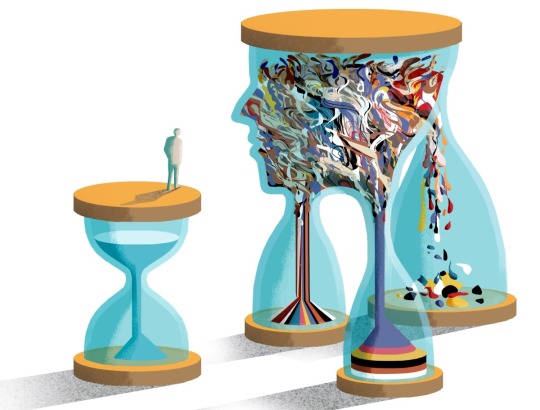
View On WordPress
0 notes
Text

#repost#vida#morte#viver#morrer#viveres#morreres#finitude#fragilidade#fugacidade#distração#auditoria#autoconhecimento#autossaber#autoestima#autoaceitação#autenticidade#autoconsciência#autorreconhecimento#BemEstar#BemViver#vivências#saberes#levezas#potências#TextosComoTrechosDeUmLivro#dercinei
5 notes
·
View notes
Text
The Falsehood of the "Meth-Caused Homelessness" Claim: A Libertarian Response
Homelessness is a complex and multifaceted issue, and it is simplistic and reductionist to suggest that it is caused by a single factor such as meth addiction. While meth addiction may be a factor for some homeless individuals, it is important to recognize that it is not the sole cause and that a one-size-fits-all approach to addressing homelessness will not be effective.
Homelessness has multiple root causes, including lack of affordable housing, job insecurity, mental illness, and the failure of social safety net programs. Additionally, excessive zoning regulations can limit the availability of affordable housing, contributing to the homelessness problem.
So what can be done to address homelessness? Rather than relying on targeted government intervention, we should focus on strategies that lower time prices and make resources more affordable. This can include policies that reduce the cost of living, such as lowering taxes and regulatory burdens, and that increase access to credit and capital, making it easier for individuals to help themselves and others. By empowering individuals to take control of their own lives and overcome homelessness, we can create a more prosperous and self-sufficient society.
It is important to recognize the complexity of homelessness and to approach it with a nuanced and multifaceted approach. Only by understanding the root causes and implementing targeted solutions can we hope to make a lasting impact and reduce homelessness in our communities. This means moving beyond simplistic explanations that pin the blame on a single factor such as meth addiction, and instead considering the multiple root causes of homelessness. It also means focusing on strategies that lower time prices and make resources more affordable, rather than relying solely on targeted government intervention that may function more as a jobs program for those who claim to help the homeless rather than actually helping the homeless. By empowering individuals to take control of their own lives and overcome homelessness, we can create a more prosperous and self-sufficient society.
#Libertarianism#Self-sufficiency#Prosperity#Private charity#Individual responsibility#Credit and capital#moribund institute#Regulatory burden#Taxes#Cost of living#Time prices#Zoning regulations#Mental illness#Job insecurity#Affordable housing#Government intervention#Social safety net#finitude fighters#Poverty#Meth addiction#Homelessness
9 notes
·
View notes
Text

source : @cheminer-poesie-cressant
l’usure ne connaît pas la fin mais dans ce destin commun elle n’effectue jamais le même chemin ; l’usure aime prendre l’apparence de la multitude
© Pierre Cressant
(mardi 13 décembre 2022)
#poésie#poème#poésie en prose#poème en prose#poètes sur tumblr#poètes français#poésie contemporaine#french poetry#art photography#photographers on tumblr#usure#mur#pierre#finitude
24 notes
·
View notes
Quote
Me dissestes uma vez que era comum desistirem de ti. Vesti então um manto de coragem e segui - embora ciente da finitude daquela troca - completamente disposta a não ser mais uma a ir embora. Que ironia! Fostes tu a me deixar.
𝐷𝑖𝑇ℎ𝑖𝑒𝑙𝑙𝑒.
6 notes
·
View notes
Photo




Friability [フライアビリティー] The quality of being friable, or easily broken, crumbled, or reduced to powder; friableness.
https://en.wiktionary.org/wiki/friability
#Friability#friableness#friable#easily broken#crumbled#moribund institute#finitude fighters#morenvironments#morenvironment#environment
8 notes
·
View notes